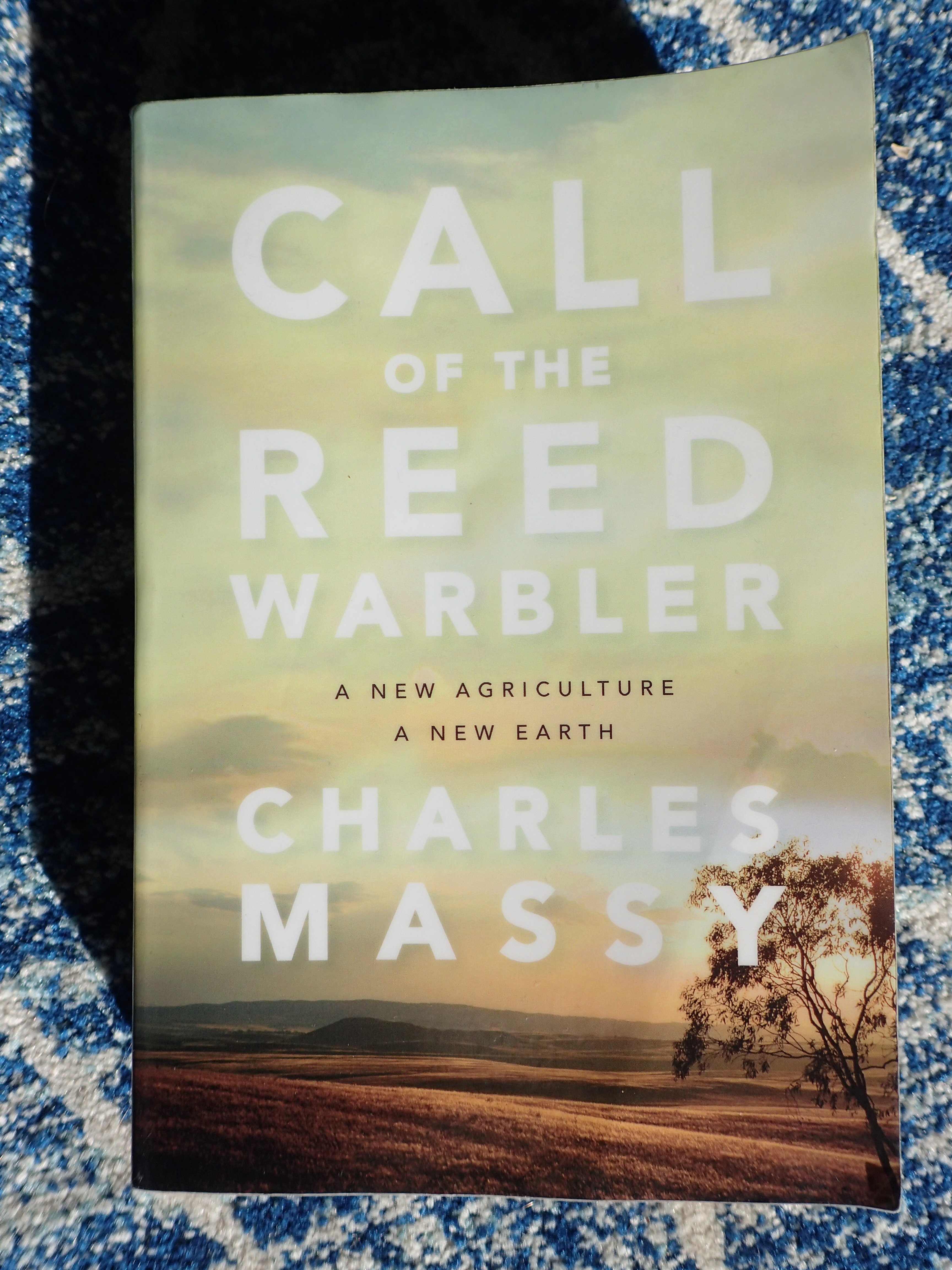Weeknotes 11: Regenerative agriculture

-
I finished reading Call of the Reed Warbler, which is written by an Australian farmer (Charles Massy) about the practise of regenerative agriculture.
In brief, regenerative agriculture is a way of farming which seeks to understand and work with the ecosystems of the land, thereby improving productivity over time. This contrasts with industrial agriculture, which reduces the complexity and quality of the soil, and so relies heavily on external chemical inputs to keep the show on the road.
Some of the benefits of the regenerative approach are that the soil is able to store much more carbon, biodiversity is encouraged and water-retention capacity is greatly improved (which is hugely important for drought resilience on the ‘driest continent on Earth’).
I was interested in this book because I wanted to learn more about how land use practises can help heal the climate and ecological crises. I certainly also learned a bit about Australia’s unique environment and history as a continent. It’s is a bit on the long side and certainly isn’t a light read, but I enjoyed reading the many stories of farmers all over Australia who are embracing these practises and seeing very positive results.
These days it’s widely understood that meat and dairy production has a large role in global carbon emissions. One might reasonably conclude that the best thing for the climate would be for everybody to swich to a plant-based diet. So I found it interesting that Massy talks a lot about the positive role that livestock can play in regenerating landscapes.
Perhaps it’s helpful to understand the ways in which livestock farming can contribute to carbon emissions:
- Methane released by the animals’ digestive systems
- Carbon lost from soil erosion on over-grazed land
- Carbon lost from land clearing to create new pasture land
- Carbon lost and emitted from the process of growing animal feed (including land clearing, transportation and soil erosion)
In a regenerative system, only the first source exists. Which is not to say that it doesn’t matter, but in combination with all of the positive effects, the farm could well be a net carbon sink. Not to mention that it supports the water cycle, which is also very important for sustaining life.
Anyway, I’ll continue eating mostly plants. I don’t think this is an excuse to start eating steak every night. But I found it interesting to consider that animals have a role to play in a sustainable world. As Massy says in the book ‘mother nature never farms without animals’ (that is, if you look at functioning natural ecosystems, there are always animals involved).
-
The question which arises for me while reading about this topic is: what can I do? I’m a programmer, not a farmer. Well, during the week I met with Danni from the Australian chapter of Open Food Network to hear more about the project.
OFN is a software tool to help farmers distribute their food directly to the people who want to eat it. But more than that, it’s a group of people who are working on transforming the food system to make it more sustainable for farmers, eaters and the planet.
We had a great chat and I’m interested to see how I can help out in the future.
-
I can’t remember how I came across this article called Tragedy Plus, but it certainly doesn’t pull any punches:
If you’re making plans for the next ten years, and they don’t include radically changing your own way of life along with everyone else you know, then you’re planning to die. You’re planning to let your children die, your nephews and nieces and cousins, your relatives in the animal kingdom and the fungi and the plants, all this life that struggled for so long to become so beautiful and complex. Seven billion people dead, a million species extinct. If you plan for business as usual, you plan for a holocaust.
Wear the sadness. Bear the grief. Feel it, show it, speak your truth to the people around you. They are also already living it. It doesn’t make it worse to say it aloud. In fact, it can make it better. Weep together, grieve for your world and your families and your normal lives. There will be no normal lives until our planet has healed from these feverish convulsions.
-
Via Future Crunch I read through this beautifully produced photo essay about the deforestation of Brazil’s Amazon rainforest. It was an interesting insight into what the situation is like on the ground there. It was published a little while ago now, in January 2018, and I can’t imagine that the election of Jair Bolsonaro (‘Brazil’s Trump’) has given much ground for hope.
-
Here’s a lovely short video interview with Rich Bartlett about Enspiral.
Comments
I'd love to hear from you here instead of on corporate social media platforms! You can also contact me privately.
Add your comment